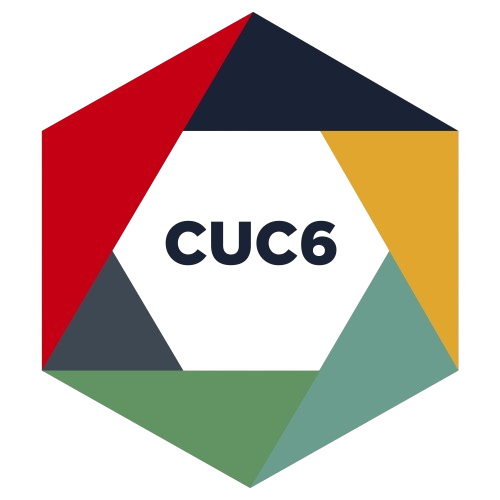Engineering: FAQs
What is the difference between an Engineering AAQ and an Engineering T-Level?
- Engineering AAQ (Alternative Academic Qualification):
- This is a more academic route, typically involving the study of subjects like Maths and Physics, which provide a strong theoretical foundation.
- It is great if you plan to progress to a university degree in Engineering.
- Engineering T-Level:
- This is a more technical qualification that combines classroom learning with a significant amount of practical experience.
- It includes an industrial placement of at least 45 days, giving you hands-on skills in a real workplace.
- T-Levels are ideal if you want to go straight into the industry or pursue a Higher Apprenticeship after college.
- They are graded like A-levels (Pass, Merit, Distinction, or Distinction*).
What subjects should I have studied at GCSE to get onto the course?
For both qualifications, a strong foundation in Maths and Science is crucial:
- Required GCSEs: You will need good grades in GCSE Maths and Physics (or Combined Science).
- For the AAQ, you will need a grade 6 in Maths.
- For the T-Level, you will need a grade 5 in Maths.
- Advantageous Qualification: It is also an advantage to have studied Level 2 Engineering and to have achieved a Level 2 Merit in that qualification.
What will I actually learn?
This depends on the course you choose:
- Engineering AAQ: This will focus on core principles like mechanics, electronics, and materials science. You will do a lot of problem-solving and analytical work.
- Engineering T-Level: This will cover a broader range of practical skills, including design, maintenance, and manufacturing processes, often with a specialisation like maintenance and installation or design and development. You will spend a lot of time in workshops and on-site.
Is it hard?
- Yes, it can be challenging, but it is very rewarding.
- Both courses require commitment and a strong work ethic.
- You will need to be good at problem-solving and willing to think critically.
- The most important thing is to be interested in how things work and how to build them. If you are passionate about engineering, the work will not feel so difficult.
What skills will I learn?
You will develop skills in digital design and modelling. The core software you will likely use is CAD/CAM (Computer-Aided Design/Computer-Aided Manufacturing) software, which allows you to design and prepare products for manufacture.
- Core Software Skills:
- Yu may learn about simulation software to test designs virtually.
- Yu may also use Electronic Design Automation (EDA) tools for circuit design.
- Essential Hands-On Skills:
- Reading and interpreting technical drawings and blueprints.
- Using workshop machinery and tools safely.
- Problem-solving and critical thinking to overcome design challenges.
- Project management and working as part of a team.
Focusing on Autodesk Fusion 360
Autodesk Fusion 360 is a great example of an all-in-one software that integrates both CAD and CAM. It is a popular choice for educational and professional settings because it is a unified platform for the entire product development process.
With Fusion 360, you will be able to:
- Create a 3D model of your design using a variety of modelling techniques. (This is the CAD part).
- Simulate how your design will perform under different conditions, such as stress or heat.
- Generate toolpaths and G-code for manufacturing. (This is the CAM part, and it is how you turn your digital model into a real object).
- Collaborate with others on your designs, as the software is cloud-based.
How can I prepare over the summer?
- Practise your Maths: Go over algebra, trigonometry, and basic physics concepts.
- Read up on Engineering: Watch documentaries on engineering marvels, read articles about new technology, and follow engineering news.
- Build something! Get a simple project kit, like a small robot or an electronics kit. This will help you get used to practical work and problem-solving.
- Consider a Work Experience Placement: If possible, try to get some work experience at a local engineering company to see what the job is really like.
At the forefront of design and lean manufacturing, this pathway will propel you to the cutting edge of engineering provision in schools.
This pathway will provide entry to university or employment through an apprenticeship in engineering. For example: Advanced Apprenticeships in Manufacturing Engineering, Power Engineering or Engineering Environmental Technologies.
The qualification could also lead directly to employment in engineering such as electrical and electronic engineering, mechanical engineering and design, automation, systems and control and manufacturing.
Suitable Subjects
Cam T Engineering
T-level engineering
A-level Physics
A-level Maths
Further Maths
Enrichment opportunities:
Autodesk accreditation
Visits to partners sites
University Courses and Apprenticeships
University Courses
- Mechanical Engineering (BEng, MEng)
- Electrical & Electronic Engineering (BEng, MEng)
- Civil Engineering (BEng, MEng)
- Aerospace Engineering (BEng, MEng)
- Automotive Engineering (BEng, MEng)
- Manufacturing Engineering (BEng, MEng)
- Robotics & Automation Engineering (BEng, MEng)
- Mechatronics (BEng, MEng)
- Renewable Energy Engineering (BEng, MEng)
- Biomedical Engineering (BEng, MEng)
- Structural Engineering (BEng, MEng)
- Marine Engineering (BEng, MEng)
- Engineering Design (BEng, MEng)
- Engineering Physics (BEng, MEng)
- Systems & Control Engineering (BEng, MEng)
Apprenticeships
- Advanced Manufacturing Apprenticeships
- Power Engineering Apprenticeships
- Automotive Engineering Apprenticeships
- Aerospace Engineering Apprenticeships
- Electrical & Electronic Engineering Apprenticeships
- Mechanical Engineering Apprenticeships
- Robotics & Automation Apprenticeships
- Environmental Engineering Apprenticeships
Careers
There are lots of different careers in engineering. Some examples of areas of work are:
· Defence
· Space
· Energy
· Transport
· Environmental
· Medical and pharmaceutical
· Construction
· Marine
· Food and drink
And the following potential main areas of expertise are
· Design
· Research and prototype development
· Production
· Installation and maintenance
· Safety and quality assurance
Partners
Autodesk
Festo
JCB
Jaguar Land Rover
Siemens
Society of Operations Engineers
Beverston Engineering

